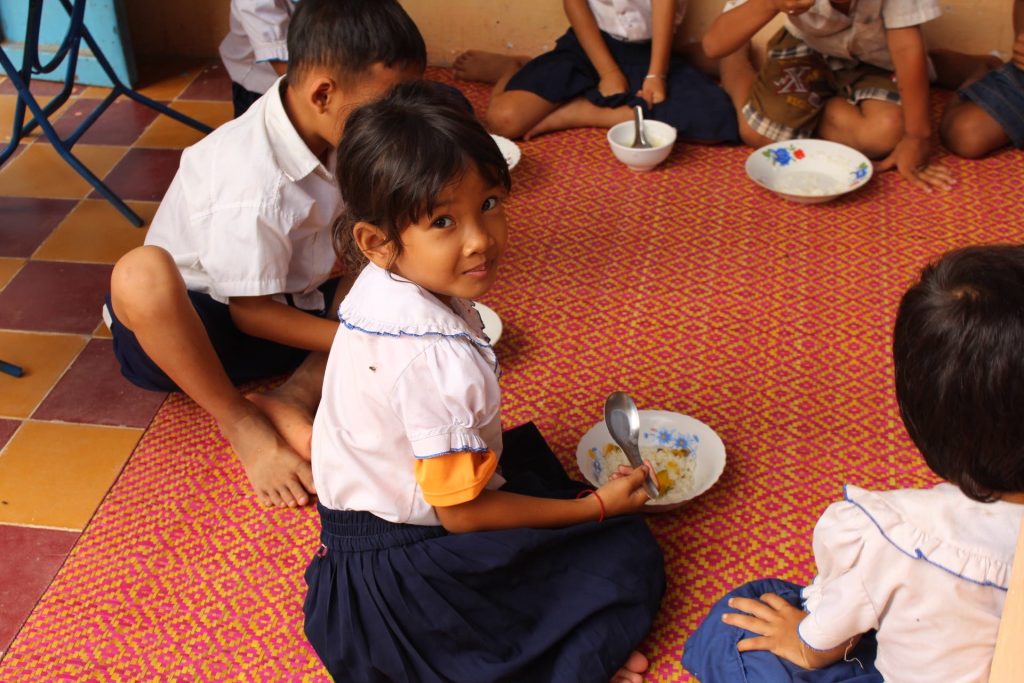In Siem Reap province, homegrown school meals have improved lives throughout the community. Participating farmers have gained a better understanding of prices, market opportunities, and expansion. For some, their livelihoods are no longer merely about subsistence, but success. Yun says he sees himself as a businessperson now.
The additional income earned by farmers like Yun enable them to not only invest in their farms by purchasing new equipment, land, seeds, and fertilizer, but also to invest in their homes and families. Thanks to WFP’s homegrown school meals model, Yun has been able to buy school supplies for his daughter.
In Cambodia, stronger local economies mean fewer working adults are forced to migrate to neighboring Thailand in search of migrant labor, keeping families together.
And then there’s the sense of pride that comes from knowing that one’s hard work is helping the next generation succeed. That’s hard to put a price on.
“I’m proud I can use my hands to grow food for my daughter and her classmates,” Yun says.
Want to learn more about how the UN is innovating to improve lives? Sign up to be a champion of innovation.
Innovation in Action shares the stories of how the UN is working with partners to pilot, test, and scale new ideas and new ways of working to deliver better results for people on the ground. From using artificial intelligence to better understand peoples’ needs to innovative methods to reduce maternal and infant mortality to reimagined partnerships and new approaches to mediation, the UN is working across issues and sectors to create dynamic and impactful solutions. The series has been developed with input and support from the UN, including the UN Innovation Network.

